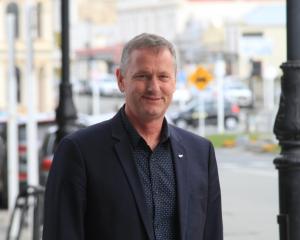
Using so-called "gay marriages" to foster chicks from unsustainable nests was just another tool Penguin Rescue used to maximise survival and breeding of the endangered birds, manager Rosalie Goldsworthy said.
The charitable organisation ran a volunteer-led intervention programme that took a more hands-on approach in its attempt to save the species, she said.

"What has been different is that we have given them artificial eggs to see if the relationship is enduring — and if it was, we have transferred eggs from unsustainable nests."
Penguin Rescue has called for increased human intervention, including administering antibiotics to penguin chicks in the first few weeks of life, during the breeding season in the fight for the species’ survival. At Moeraki, where males already outnumbered females, not all breeding females were experienced breeders. Eleven 2-year-old females bred for the first time, and while they could lay two fertile eggs, raising the chicks was a different matter.
"It’s just too hard," Mrs Goldsworthy said.
"They can raise one, but the physical strain of raising two chicks on a 2-year-old is just extreme."
Last year, one same-sex penguin pair was given an egg, and the chick successfully fledged.
And this year, three same-sex penguin pairs were given eggs to ease the strain on the first-time breeding females.
One first-time same-sex nest failed, another first-time same-sex nest raised one chick and the same-sex penguin pair that successfully raised a chick last year raised two chicks.
Beginning at the weekend, Penguin Rescue would continue its intervention in the Moeraki yellow-eyed penguins’ breeding season.
Penguin chicks would be microchipped and weighed at 70 days old, and those under 5kg would be uplifted from their nests and hand-raised. Chicks would be weighed again and their microchips tested at 90 days before chicks fledged around the 100-day mark. This summer at Moeraki, of 42 nests, six failed and the remaining 36 nests produced 56 chicks.
This breeding season’s estimate of 250 yellow-eyed penguin nests was down on the previous year’s 261, which had already amounted to the fewest nests in a quarter of a century.
In a newsletter earlier this week, Mrs Goldsworthy lamented the lack of effort being put in to save the species.
"Every chick hatched elsewhere in North Otago this season is dead," she wrote.
"What can we do in 2018 to make a difference? We will continue with our conservation effort and keep recording the evidence of the demise of this colony."
Mrs Goldsworthy also noted reports from visitors that the behaviour of other visitors was impacting wildlife, including penguins.
One visitor to the area was seen handling a seal pup and another was seen "buzzing" penguins with a drone.












